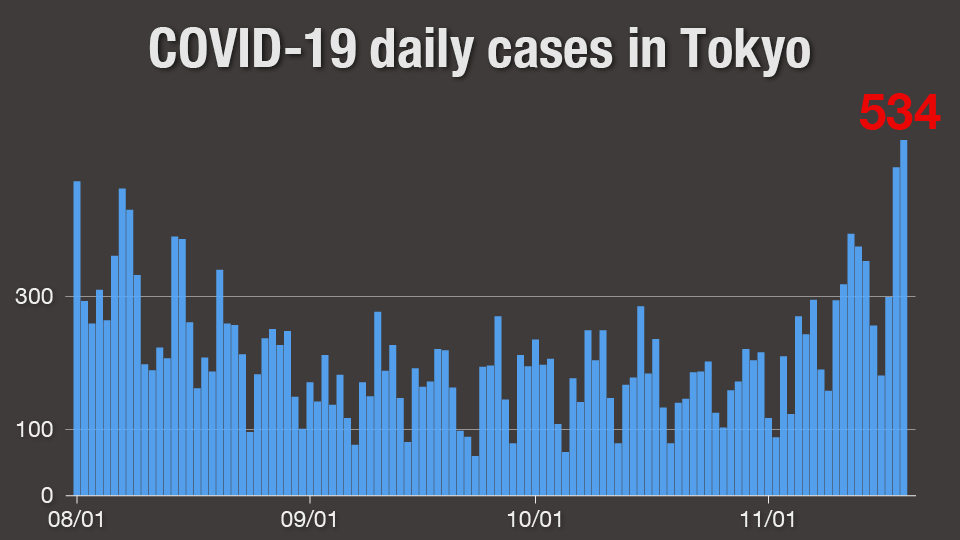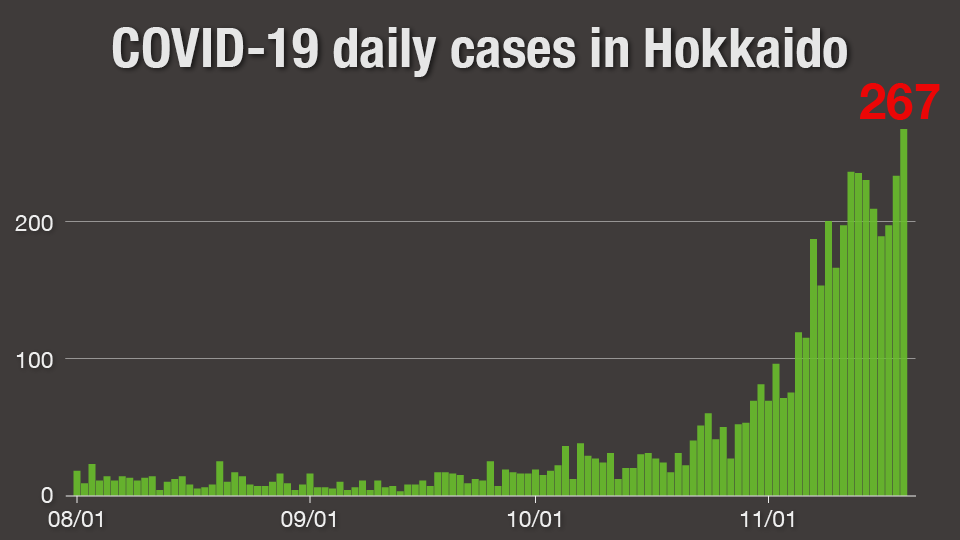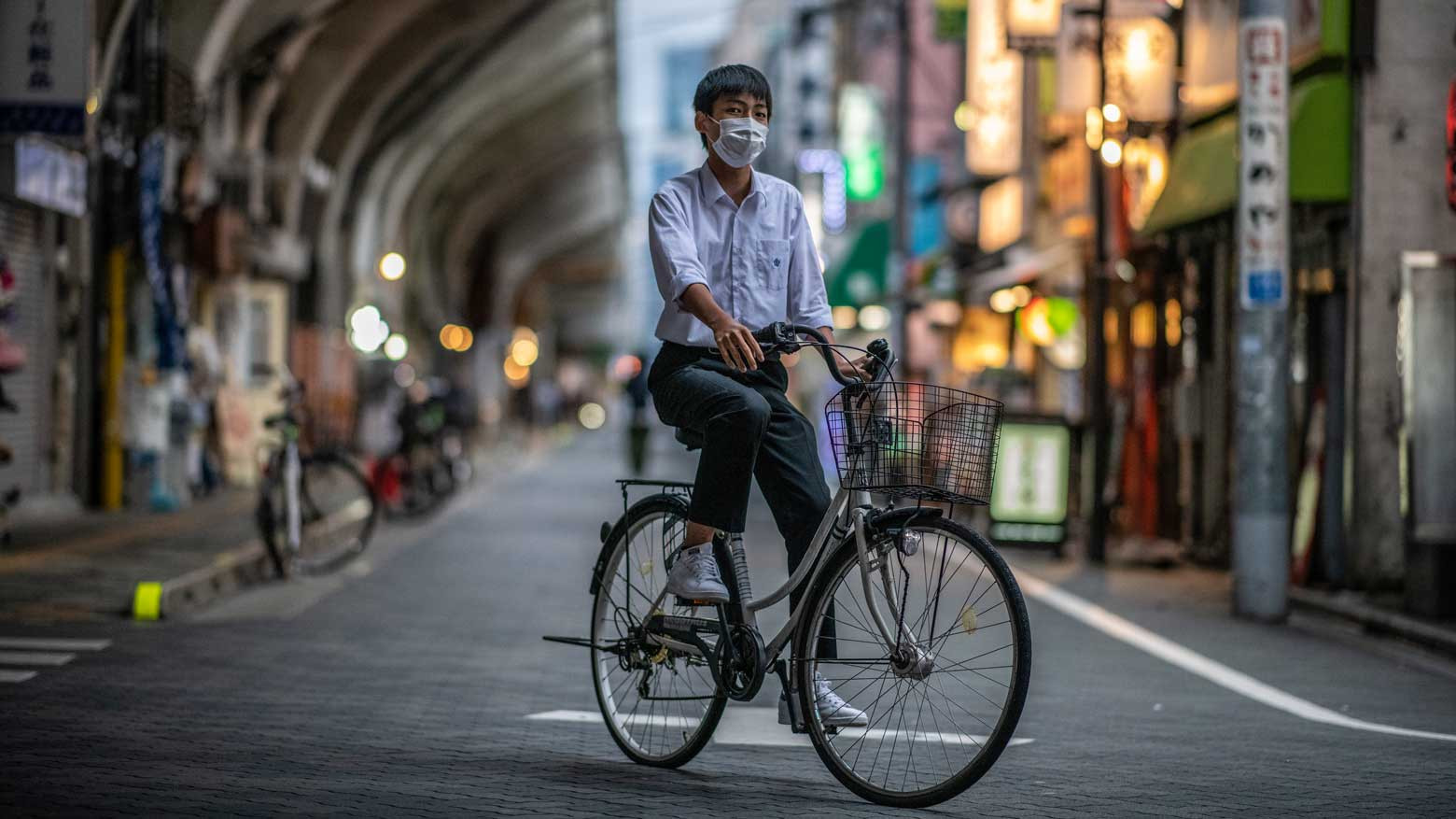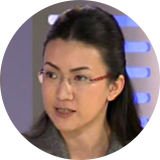Officials are urging people to take thorough measures to reduce the risk of infection, such as not dining out in large groups. They are not currently asking restaurants and other businesses to shorten opening hours. They say it is ineffective at containing the virus in people's homes and across a wide range of age groups.
In Tokyo, there are currently a record number of patients in their 40s, 50s and 65 or older. The latest statistics suggest the virus is now spreading among all generations, unlike the spike among younger people in early summer.
On Wednesday, Tokyo Governor Koike Yuriko said, "More people are likely to test positive from now on," adding that the fundamental point is to keep the number of critically ill patients as low as possible.

Cases are also soaring in the northern prefecture of Hokkaido, which reported 267 on Thursday. About 200 have been confirmed per day for more than a week now.
Yamagishi Takuya of the National Institute of Infectious Diseases has been working in the prefectural capital Sapporo since early this month. He was sent by the Health Ministry as part of a team tasked with tracking group infections in the city, which has become a hot spot. He says the situation could soon be too much for the local medical system to handle.
Hokkaido Governor Suzuki Naomichi is calling on people to refrain from non-essential outings and risky activities, including dining out in groups. He also wants them to avoid traveling to and from Sapporo.
"It's possible that invisible chains of infections are widespread in Sapporo," says Suzuki. "Other parts of the prefecture will be next. We must have the virus contained by the end of the month."

More than 2,200 new cases were reported nationwide on Thursday. It was the second straight day the figure has topped 2,000. Osaka Prefecture had 338, and Aichi Prefecture had 219 – both records.
Government responses
Nishimura Yasutoshi is the minister in charge of Japan's response to the outbreak. On Wednesday, he said an explosive rise in cases would immediately be followed by stronger measures.
Nishimura wants authorities to revise and strengthen their guidelines for restaurants and bars -- especially with the end-of-year party season approaching. He also suggested more financial support for affected businesses.
The government is looking to boost consumption with a series of subsidy campaigns for dining out, accommodation and travel. It has no immediate plans to halt the push to revive the economy, but is asking local governments to consider limiting the issuance of restaurant coupons to reduce group dining.
Omi Shigeru, who heads the central government's expert panel on the coronavirus, warned of tougher measures.
"The government may have to limit economic and social activities," he says. "Now is the time for people to brace themselves, if they want to prevent that from happening."



